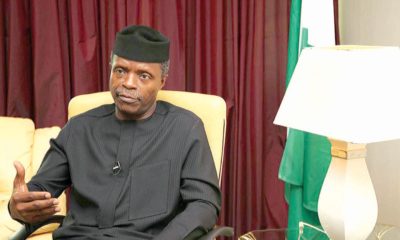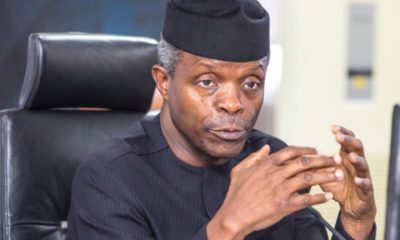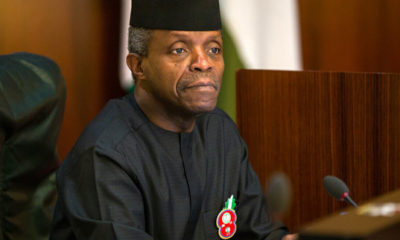Nigeria and Vietnam are to take opportunities existing in agriculture and technology in both countries for effective collaboration that will deepen their diplomatic relations.
Nigeria’s Vice President, Professor Yemi Osinbajo made this assertion at the Presidential Villa during a courtesy visit by the Ambassador of the Socialist Republic of Vietnam to Nigeria, Luong Quoe.
“There are specific areas where we have talked about in the past, agriculture is one.
“There was also talk about cashew processing and rice growing and rice processing where Vietnam has shown great innovation and great success.
“We think that these are areas where we certainly can do a lot more with cooperation,” Professor Osinbajo said.
The Vice President noted that other areas of collaboration between Nigeria and Vietnam would be in the interaction of young people actively engaged within the technology space in both countries.
He said, “I know that Vietnam is doing interesting things in technology and telecoms sectors.
“I think that we should look for opportunities where young people in Nigeria and Vietnam can interact especially in technology and share ideas, innovation, and their different attainments.
“ I certainly would like us to explore that possibility, especially in the area of technology with our young people.”
Professor Osinbajo stated that there was room for cooperation, and one of such ways is being effective in establishing relationships and ensuring the relationships endure if both countries are “able to structure the Bi-national Commission and then also some of the economic collaboration through agriculture and technology.”
The Vice President thanked the Vietnamese Government for the kind donation of medical supplies to the Nigerian Mission in Hanoi, Vietnam.
He said that the supplies comprised Droplet Resistant and Antibacterial Fabric Masks, Medical Face Masks and Real-Time Reverse Transcriptase (RT-PCR) Diagnostic Panel for SARS-COV 2.
Other donations that he listed were 100,000 high-quality 4-Fly Anti- Bacterial Medical face masks by a Vietnamese pharmaceutical company known as ANH THU Pharmaceutical and Medical Equipment Investment Joint Stock Company–PSD Group.
In his remarks, Ambassador Quoe commended Nigeria’s role in Africa “as being enormous” and stated that Vietnam “would always wish to have Nigeria’s support in multilateral forums, most importantly the United Nations.”
He said that the economic potentials between both countries are huge and hopes Nigeria “would soon recognize Vietnam as a country of full market economy and Nigeria and Vietnam would sign an agreement on investment, promotion, and protection.”
The ambassador added that “there are five to seven thousand Nigerians studying and helping in the development of the economy of Vietnam” and called for direct flights between Nigeria and Vietnam.
The Minister for Foreign Affairs, Mr. Geoffrey Onyeama, and other top government officials were also present at the meeting.

 Forex3 weeks ago
Forex3 weeks ago



 Naira2 weeks ago
Naira2 weeks ago
 Billionaire Watch2 weeks ago
Billionaire Watch2 weeks ago




 Naira2 weeks ago
Naira2 weeks ago




 Naira2 weeks ago
Naira2 weeks ago






 Naira4 weeks ago
Naira4 weeks ago


 Naira1 week ago
Naira1 week ago






 Naira4 weeks ago
Naira4 weeks ago




















